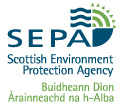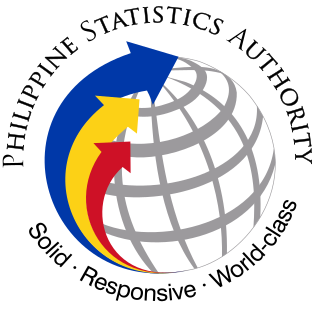
There has not been a government of England since 1707 when the Kingdom of England ceased to exist as a sovereign state, as it merged with the Kingdom of Scotland to form the Kingdom of Great Britain. The Kingdom of Great Britain continued from 1707 until 1801 when it merged with the Kingdom of Ireland to form the United Kingdom of Great Britain and Ireland, which itself became the United Kingdom of Great Britain and Northern Ireland (UK) in 1922 upon independence for most of the island of Ireland.

In the United Kingdom, a listed building is a structure of particular architectural or historic interest deserving of special protection. Such buildings are placed on one of the four statutory lists maintained by Historic England in England, Historic Environment Scotland in Scotland, Cadw in Wales, and the Historic Environment Division of the Department for Communities in Northern Ireland. The classification schemes differ between England and Wales, Scotland, and Northern Ireland. The term has also been used in the Republic of Ireland, where buildings are protected under the Planning and Development Act 2000, although the statutory term in Ireland is "protected structure".
Local government in Northern Ireland is divided among 11 single-tier districts known as 'Local Government Districts' and formerly known as district council areas (DCAs). Councils in Northern Ireland do not carry out the same range of functions as those in the rest of the United Kingdom; for example they have no responsibility for education, road-building or housing. Their functions include planning, waste and recycling services, leisure and community services, building control and local economic and cultural development. The collection of rates is handled centrally by the Land and Property Services agency of the Northern Ireland Executive.
Town and country planning in the United Kingdom is the part of UK land law which concerns land use planning. Its goal is to ensure sustainable economic development and a better environment. Each country of the United Kingdom has its own planning system that is responsible for town and country planning, which outside of England is devolved to the Northern Ireland Assembly, the Scottish Parliament and the Senedd.

The functions of local government in the Republic of Ireland are mostly exercised by thirty-one local authorities, termed County, City, or City and County Councils. The principal decision-making body in each of the thirty-one local authorities is composed of the members of the council, elected by universal franchise in local elections every five years from multi-seat local electoral areas using the single transferable vote. Many of the authorities' statutory functions are, however, the responsibility of ministerially appointed career officials termed Chief executives. The competencies of the city and county councils include planning, transport infrastructure, sanitary services, public safety and the provision of public libraries. Each local authority sends representatives to one of three Regional Assemblies.

The Scottish Environment Protection Agency is Scotland's environmental regulator and national flood forecasting, flood warning and strategic flood risk management authority. Its main role is to protect and improve Scotland's environment. SEPA does this by helping business and industry to understand their environmental responsibilities, enabling customers to comply with legislation and good practice and to realise the economic benefits of good environmental practice. One of the ways SEPA does this is through the NetRegs environmental guidance service. It protects communities by regulating activities that can cause harmful pollution and by monitoring the quality of Scotland's air, land and water. The regulations it implements also cover the storage, transport and disposal of radioactive materials.

The Philippine Statistics Authority is the central statistical authority of the Philippine government that collects, compiles, analyzes, and publishes statistical information on economic, social, demographic, political affairs, and general affairs of the people of the Philippines, as well as enforcing the civil registration functions in the country.
In the United Kingdom, devolved matters are the areas of public policy where the Parliament of the United Kingdom has devolved its legislative power to the national legislatures of Scotland, Wales and Northern Ireland, while reserved matters and excepted matters are the areas where the UK Parliament retains exclusive power to legislate.

Northern Ireland Water Limited is the main water company in Northern Ireland.

The Planning Inspectorate is an executive agency of the Ministry of Housing, Communities and Local Government of the United Kingdom Government with responsibility for making decisions and providing recommendations and advice on a range of land use planning-related issues across England. The Planning Inspectorate deals with planning appeals, nationally significant infrastructure projects, planning permission, examinations of Local Plans and other planning-related and specialist casework.
Development Management (DM), formerly known as planning control, or development control, is the element of the United Kingdom's system of town and country planning through which local government or the Secretary of State, regulates land use and new building, i.e. development. It relies on a "plan-led system" whereby development plans are produced, involving various stages of public consultation prior to being adopted. Subsequently, development that requires planning permission, which is granted or refused with reference to the development plan as the starting point, then other material considerations are taken into account.
Borough status is granted by royal charter to local government districts in England, Wales and Northern Ireland. The status is purely honorary, and does not give any additional powers to the council or inhabitants of the district. In Scotland, similarly chartered communities were known as royal burghs, although the status is no longer granted.

The National Economic and Development Authority is an independent cabinet-level agency of the Philippine government responsible for economic development and planning. It is headed by the president of the Philippines as chairman of the NEDA board, with the Secretary of Socioeconomic Planning as vice-chairman. A number of Cabinet members, the Governor of the Bangko Sentral ng Pilipinas, the Chairperson of the Metropolitan Manila Development Authority, the Chief Minister of Bangsamoro, the Secretary of Information and Communications Technology, the Chairman of the Subic–Clark Area Development Corporation, and the National President of the Union of Local Authorities of the Philippines are members of the NEDA Board.

The Department for the Economy is a devolved Northern Ireland government department in the Northern Ireland Executive. The minister with overall responsibility for the department is the Minister for the Economy.
The Department of Agriculture, Environment and Rural Affairs is a government department in the Northern Ireland Executive, the devolved administration for Northern Ireland. The minister with overall responsibility for the department is the Minister of Agriculture, Environment and Rural Affairs. The department was called the Department of Agriculture and Rural Development between 1999 and 2016. The Minister of Agriculture previously existed in the Government of Northern Ireland between 1921 and 1972, where the department was known as the Ministry of Agriculture. The current Permanent Secretary is Katrina Godfrey.
The Department for Communities is a devolved Northern Ireland government department in the Northern Ireland Executive. The minister with overall responsibility for the department is the Minister for Communities. The department was previously created in May 2016 following the Fresh Start Agreement and the dissolution of several departments, such as the Department for Social Development, the Department of the Environment, the Department of Culture, Arts and Leisure and the Department for Employment and Learning from which several functions have amalgamated.

The Department of the Environment was a devolved Northern Irish government department in the Northern Ireland Executive. The Minister for the Environment was overall responsible for the department.

The Northern Ireland Civil Service is the permanent bureaucracy of employees that supports the Northern Ireland Executive, the devolved government of Northern Ireland.
DfI Rivers is an executive agency of the Department for Infrastructure (DfI), in the Northern Ireland Executive. It is the statutory drainage and flood defence authority for Northern Ireland under the terms of the Drainage Order 1973.











